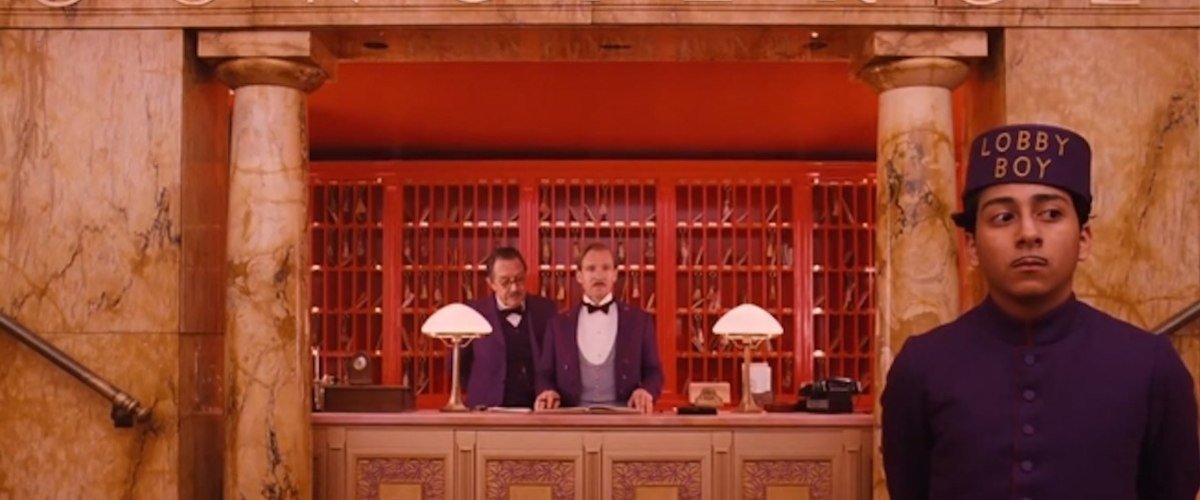Over the sweep of his career, filmmaker Wes Anderson has
situated himself as the master of the minutia. When it comes to every aspect of
his films, including costuming, performances, set-decoration, and camera
placement, his movies have always exuded a sense of meticulous design and
consideration. However, though generally well-reviewed and culturally appreciated,
the thematic or emotional sincerity of his films have often been overlooked or
underplayed by those in conversation with his work. And to be fair, even
Anderson himself has occasionally put his storytelling on the back-burners to thoroughly explore the visual compositions of his worlds, sometimes resulting
in frustratingly banal indulgences of control.
From
film to film, Anderson has oscillated between visual metaphor as a way of
emotional storytelling and arch-comedy as a way of exploring character-dilemma.With his most recent film “The Grand Budapest Hotel” he seems to be working
somewhere in the middle, accessing a darker sense of authenticity just beneath the whimsical world-building and the flip nature of
his ironic wit.
Ralf
Fiennes stars as M. Gustave, the concierge of a famed European hotel on the
eve of a barely discussed fascist takeover.
After the death of one of his wealthiest clients (Tilda Swinton), with
whom he was having a long hidden affair, her sons (Adrien Brody and Willem
Dafoe) become disgruntled when it is revealed that she their mother has left the hotel manager with a priceless painting that had previously belonged in the family.
When Gustave is then framed for her murder and put into jail, he must trust his
right-hand lobby boy Zero (Tony Revolori) to help him escape, prove his
innocents and survive the gruesome manhunt set into motion by the embittered
siblings.
Taking
place inside three separate framing devices, within three different generations,
“The Grand Budapest Hotel” unfolds as a kind of multi-layered big-fish narrative. Full
of interesting contradictions and historical allusions, it disguising itself as an adventurous
comedy of errors, and if one wishes to view the film as just being that, it is both satisfying as a dark comedy and rousing action film, displaying some of Anderson’s
most ambitious technical set-pieces yet. These low-tech but highly-choreographed scenes include a complex prison escape sequence and a
shoot-out turn chase-scene that’s both evenly paced and exciting to view in it's masterful execution. Likewise, his brand of dry, matter-of-fact dialogue is
still very much present and the detailed designs of his visual spaces are
pushed even farther outside of the realm naturalism. But below all of this
playfulness there also exists layer of contextual melancholy that’s hidden just underneath the
folktale we're being shown instead.
Many
scenes seem to purposely skim over the historical significance that exists in the
background of the plot. Our two main villains are seen working with the fascist
armies, gun in hand, as they ransack the hotel or when they stop trains to scan passenger’s personal
documents. As Dafoe’s wolf-man like character searches for our hero, he leaves a
trail of gruesome murders behind him. But even as we draw the obvious parallels
to the Nazi occupation of Europe during WW2--or in this case, an Andersonian, fanciful, It's-A-Small-World maquette version of 1930's Europe--the film keeps averting our
attention to the surfaces of its ‘film-ness’ in a way that seems to be saying
something about the nature of memory, history, and the erosion and transformation
of historical accuracy in the pursuit storytelling.
One
could choose to be frustrated by Anderson’s aloof treatment of the characters when it comes to the darker contrasts of this film, or, one can do as I have done and choose to
assume that this director is making a point about the refusal to confront the
ugliness of our past by way of idealized myth-making. As with all of Wes' work, if you are willing to accept the
general eccentricities within “The Grand Budapest Hotel” then you will no doubt
laugh at the movie’s quick humor and appreciate the craft behind its infrastructure.
However, upon reflection, you may be
surprised by the movie's weighty suggestions that in your mind.
Grade: B+
Originally published in the Idaho State Journal/March-2014
Originally published in the Idaho State Journal/March-2014

No comments:
Post a Comment